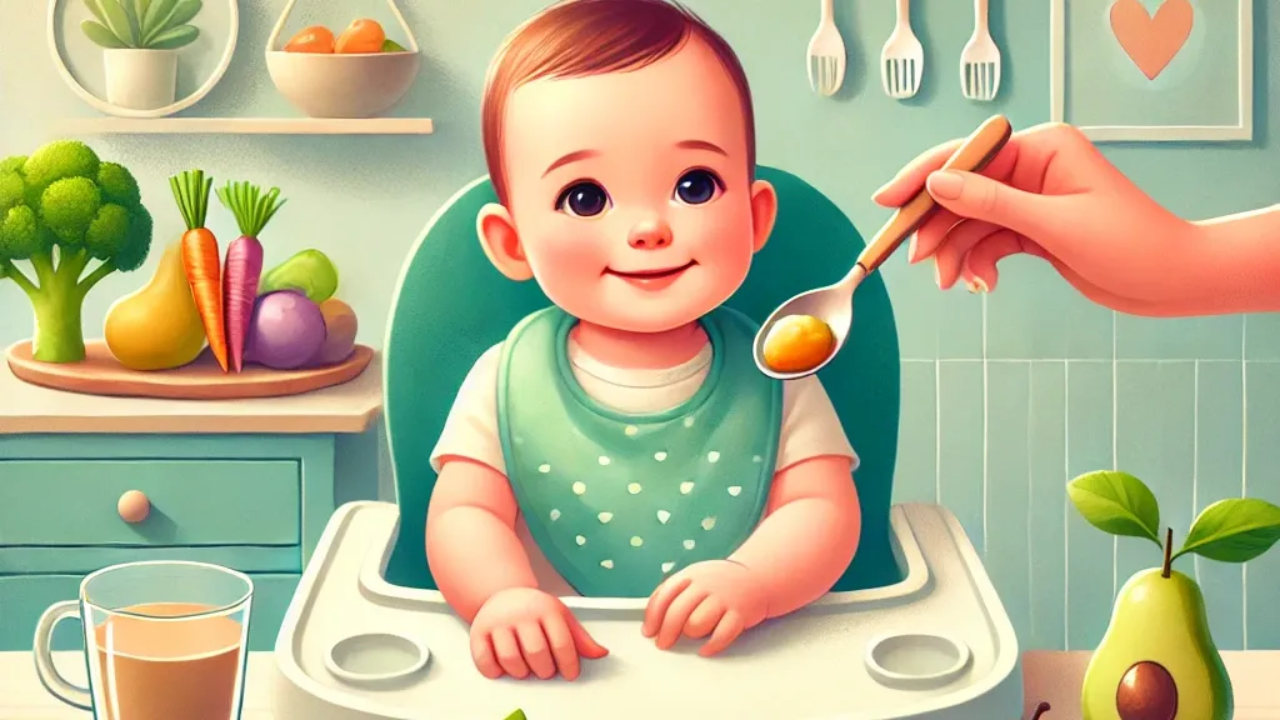
When Is the Best Time to Start Weaning?
Sep 16, 2024When Is the Best Time to Start Weaning?

A Guide for New Parents Based on NHS Advice
Weaning is an exciting milestone for both you and your baby! But it can also raise many questions, especially if you’re unsure when and how to start. According to the NHS, it’s important to introduce solid foods at the right time to make sure your baby gets the nutrition they need. Here’s a simple guide to help you through the process.
When Should You Start Weaning?
The NHS recommends starting weaning when your baby is around 6 months old. At this stage, babies are ready to try solid foods because:
- Breast milk or formula alone no longer provides enough nutrients, particularly iron.
- Your baby’s digestive system is more developed, making it easier to handle solids.
- Their coordination improves, allowing them to swallow food rather than push it out with their tongue.
Although some parents might feel pressured to start earlier, the NHS advises that weaning before 6 months isn’t necessary unless a health professional recommends it. Starting too early can increase the risk of infections, as your baby’s gut may not be fully developed.
Signs Your Baby Is Ready for Weaning
Every baby is different, but there are clear signs that show they are ready to start eating solid food. According to the NHS, your baby may be ready if:
- They can stay in a sitting position and hold their head steady.
- They can coordinate their hands, eyes, and mouth—meaning they can look at food, pick it up, and put it in their mouth by themselves.
- They can swallow food instead of spitting it out. If they still push food out with their tongue, it may be too early.
It’s important not to confuse these signs with other normal baby behaviors, like chewing their fists, waking up more during the night, or wanting extra milk feeds. These don’t necessarily mean they’re ready for solid food.
How to Start Weaning
When your baby reaches around 6 months old and shows signs of being ready, you can start weaning. The NHS suggests beginning with small, simple tastes of food, like:
- Mashed or soft-cooked vegetables (carrots, parsnips, broccoli, potatoes).
- Mashed or soft fruits (bananas, avocados, apples, pears).
- Baby rice or porridge mixed with their usual milk.
Start with just one meal a day and offer a few spoonfuls. Over time, you can increase the variety and frequency of meals as your baby becomes more used to eating solid food.
Foods to Avoid in the Early Stages
The NHS advises avoiding certain foods when starting weaning. These include:
- Salt: Babies’ kidneys can’t handle much salt, so don’t add it to their food.
- Sugar: Avoid sugary foods and drinks to help protect your baby’s teeth.
- Honey: Honey can contain bacteria that cause botulism in babies under 12 months.
- Whole nuts: These pose a choking risk and shouldn’t be given to babies.
Also, avoid giving cow’s milk as a main drink until your baby is 1 year old, but it’s fine to use small amounts of it in cooking.
Introducing Finger Foods
Once your baby gets used to purees and mashed foods, you can introduce finger foods. These help your baby develop hand-eye coordination and practice chewing. The NHS suggests safe options like:
- Soft fruits (bananas, peaches)
- Cooked vegetables (carrots, sweet potato)
- Soft pasta or bread sticks
Remember to always supervise your baby while they’re eating to avoid choking.
Be Patient and Have Fun
Weaning is a gradual process, and it’s important to let your baby explore new tastes and textures at their own pace. Some babies may take longer to get used to solid foods, and that’s okay! The key is to keep offering a variety of foods and not to worry if they don’t eat much at first.
Key Takeaways from the NHS
- Start weaning around 6 months.
- Look for signs your baby is ready: sitting up, coordination, and swallowing.
- Begin with simple, mashed foods and slowly introduce a variety.
- Avoid salt, sugar, honey, and whole nuts.
- Be patient—every baby is different!
By following these guidelines, you’ll help your baby transition smoothly to solid foods and ensure they get the nutrients they need for healthy growth. Enjoy this exciting stage, and remember, it’s okay to take it one small spoonful at a time!
If you want more advice and support on weaning then come check out our Baby Weaning Mini Course
Stay connected with news and updates!
Join our mailing list to receive the latest news and updates from our team.
Don't worry, your information will not be shared.
We hate SPAM. We will never sell your information, for any reason.

